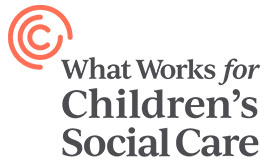New study focusing on access to higher education for vulnerable young people
The Rees Centre has been awarded £122,780 to explore the pathways into and through higher education for young people who were allocated a social worker when they were children – often referred to as ‘children in need’.
The study is funded by What Works for Children’s Social Care and the Centre for Transforming Access and Student Outcomes in Higher Education (TASO), and will be led by Dr Neil Harrison – Associate Professor and Deputy Director of the Rees Centre. It will focus on the cohort of young people born between 1st September 1998 and 31st August 1999, drawing on national administrative data accessed from the Department for Education and building on earlier work by the Rees Centre.
Dr Neil Harrison, Associate Professor and Deputy Director of the Rees Centre, said: “This is an exciting opportunity to look in detail at a group about which we currently know little, save that they are under-represented in higher education. The study will enable us to find out more about the supportive factors that can help to propel young people towards higher education despite the challenges of their childhood. We are very grateful to the two What Works Centres for their funding and support.”
Dr Michael Sanders, Chief Executive, What Works for Children’s Social Care said: “Too little is known about the higher education journey for children in need. We need a clearer picture of their experiences and pathways if local authorities, schools and higher education providers are to provide them with the right support. This research project will allow us to make important strides in that direction.”
Dr Eliza Kozman, Deputy Director (Research), TASO said: “We know that children in need face complex barriers to success in education. Higher education providers run a wide range of initiatives designed to support these learners but our recent research suggests that poor data linkage can hinder effective implementation and evaluation of these activities. Mapping the pathways into and through higher education is a vital piece of the puzzle in supporting this diverse group.”
The study will build a comprehensive picture of how personal, social and educational factors combine to influence the pathways of young people after the age of 16, including their chances of participating and succeeding in higher education. The findings will help policymakers, schools, colleges and universities to improve the support that they provide to children in need and other disadvantaged groups.
The study is expected to report in late 2022. More information about the study is available here: http://www.education.ox.ac.uk/research/higher-education-pathways-for-young-people-with-a-social-worker


